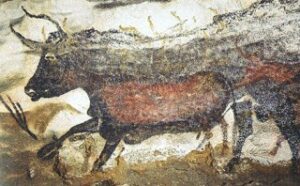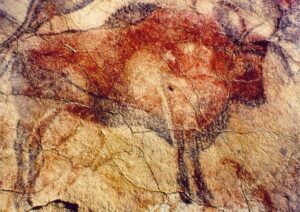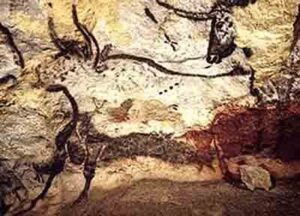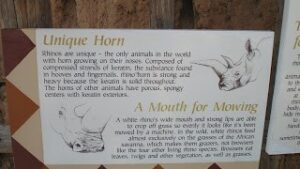I will consider unicorns in the Bible due to the fact that skeptics of various sorts have, for some time now, made an issue out of them being mentioned therein. This issue is meant as a sort of silver-bulleted attempt at discrediting the Bible: since the Bible mentions unicorns and we know that unicorns are fairy-tale-like magical mystical mythical creatures then the Bible is nothing but a glorified fairy-tale.
A number of questions come to mind with regards to this issue, some of which are:
- Does the Bible in fact mention unicorns?
2. What is a unicorn?
3. If it does, would that discredit the Bible?
4. What does the Bible mean by “unicorn”?
5. What does this issue say about the skeptics’ scholarly acumen?
The skeptics will likely answer questions one and three in the affirmative, will give a conveniently partial answer to question two and they will not bother with four and five. Hereafter, I will provide answers to these questions in turn.
- Does the Bible in fact mention unicorns?
Yes. Certain translations do employ the term “unicorn”:
Numbers 23:22 “God brought them out of Egypt; he hath as it were the strength of a unicorn.”
Numbers 24:8 “God brought him forth out of Egypt; he hath as it were the strength of a unicorn: he shall eat up the nations his enemies, and shall break their bones, and pierce them through with his arrows.”
Deuteronomy 33:17 “His glory is like the firstling of his bullock, and his horns are like the horns of unicorns: with them he shall push the people together to the ends of the earth: and they are the ten thousands of Ephraim, and they are the thousands of Manasseh.”
Job 39:9-10 “Will the unicorn be willing to serve thee, or abide by thy crib? Canst thou bind the unicorn with his band in the furrow? or will he harrow the valleys after thee?”
Psalm 22:21 “Save me from the lion’s mouth: for thou hast heard me from the horns of the unicorns.”
Psalm 29:6 “He maketh them also to skip like a calf; Lebanon and Sirion like a young unicorn.”
Psalm 92:10 “But my horn shalt thou exalt like the horn of a unicorn: I shall be anointed with fresh oil.”
Isaiah 34:7 “And the unicorns shall come down with them, and the bullocks with the bulls; and their land shall be soaked with blood, and their dust made fat with fatness.”
But what does it mean that the Bible mentions unicorns? The Bible could be employing local and contemporaneous terminology in order to make a point. For instance, when I wanted my four-year-old child to at least taste food that he does not even want to taste I tell him, “Remember that in Green Eggs and Ham he kept saying that he did not like green eggs and ham without even trying them but once he tried them he liked them.” This works every time.
However, it does not mean that I believe that Dr. Seuss’s book Green Eggs and Ham represents a real event nor that Sam I Am and the unnamed creature that finally liked the green eggs and ham existed. I am employing terminology, a story, the morale of which my son is familiar. However, I do not believe that this is the case with the Bible’s mention of unicorns but offer this option as a logical solution.
- What is a unicorn?
The skeptic will define a unicorn (“one horn”) very narrowly and very conveniently as a magical mystical mythical creature that is basically a horse with one horn and that possesses certain supernatural powers.
Below, in number four we will see that this definition is narrow, un-scholarly and is certainly invalid as a criticism of the Bible.
- If it does, would that discredit the Bible?
That depends how one views the Bible. If the Bible is just a glorified fairy-tale then it does not matter what it states. But if one views the Bible as the word of God then the fact that it mentions unicorns means that…
Wait just a moment: let us see what the Bible means by “unicorn.”
- What does the Bible mean by “unicorn”?
“The Bible mentions unicorns” is, in reality, a statement that does not mean anything, at least not without the qualification and definitions into which we are delving.
As stated above, I may mention the story of Green Eggs and Ham without believing that it was a true story.
It is of the utmost importance that we note that the Bible employs the term “unicorn” while not employing the skeptic’s definition of “unicorn.” That is to say that the Bible mentions “unicorns” but never once refers to, describes, single horned horse-like magical mystical mythical creatures. Therefore, the Bible is not discredited, even as the word of God, because it mentions unicorns.
Consider the references cited above and as yourself what the Bible states about unicorns? Just about the only thing that we can glean is that they are strong. The statement in Psalm 92 about then having a horn is italicized by the KJV translators in order to inform us that we are reading a dynamic translation into which “the horn of” has been inserted in order to ease readability and comprehension. This accretion appears accurate since the verse appears to be likening horn to horn.
Fine then, let us say that they are strong and have a horn although contextually this would mean that King David had a horn as he writes of “my horn.” Of course, “horn” is a term that was used in order to symbolically denote strength. Thus, unicorns are strong and may have a horn or just have been strong, period.
Later translations of the Bible employ the term “ox,” “wild ox” or “mountain ox” in place of “unicorn.” But surely this was done in order to hide the embarrassing fact that the Bible mentions magical my little ponies, correct? The skeptic will surely like for you to think that. That is, if you bother thinking about it at all. How many skeptics will simply say, “Oh, the Bible mentions unicorns? That is even more reason not to believe” without one bit of skepticism or research?

Strong’s Concordance enumerates the word for “unicorn” as H7214 re’em, reh-ame’, re’eymlemma “probably the great aurochs or wild bulls which are now extinct. The exact meaning is not known.” The term is from H7213, “a wild bull (from its conspicuousness): – unicorn.” In turn H7213 raa’am, raw-am’ which is defined thusly, “A primitive root; to rise: – be lifted up.”
Illustrations from Mesopotamia depict, in profile, the hunting on one horned oxen which were referred to as “rimu.” The Assyrian referred to the wild ox which they hunted as “rumu” and also depict them as single horned in profile. Ugaritic and Akkadian texts refer to the hunting of “re’em.”
It may be that they were depicted as one horned due to horn symmetry that would result in the profile appearance of one horn. Once these animals became rare or extinct their one horned anatomy may have been assumed from the illustrations. It may also be that they were referred to as one horned not due to assumptions about anatomy but due to familiarity with the illustrations.
In his Naturalis Historia, Pliny the Elder (23-79 AD) referred to “an exceedingly wild beast called the Monocerotem” that had “one black horn two cubits long projects from the middle of its forehead.” Other ancient writers (such as Aelianus, Oppian, Solinus and Martial) referred to “monocerots” or “rinokeros”: one horn and nose horn respectively.
In Asimov’s Guide to the Bible: Volume One-The Old Testament, the Atheist and scientist Isaac Asimov wrote:
The Hebrew word represented in the King James Version by “unicorn” is re’em, which undoubtedly refers to the wild ox (urus or aurochs) ancestral to the domesticated cattle of today. The re’em still flourished in early historical times and a few existed into modern times, although it is now extinct. It was a dangerous creature of great strength and was similar in form and temperament to the Asian buffaloes.

Asimov also notes the following in the same text:
The Biblical writers could scarcely have had the intention of implying that the wild ox literally had one horn. There is one Biblical quotation, in fact, that clearly contradicts that notion. In the Book of Deuteronomy [33:17-BT], when Moses is giving his final blessing to each tribe, he speaks of the tribe of Joseph (Ephraim and Manasseh) as follows: “His glory is like the firstling of his bullock, and his horns are like the horns of unicorns….” Here the word is placed in the plural since the thought of a “one-horn’s” single horn seems to make the phrase “horns of a unicorn” self-contradictory. Still, the original Hebrew has the word in the singular so that we must speak of the “horns of a unicorn,” which makes it clear that a unicorn has more than one horn.

I will have you know that housed in my local zoo, as well as yours, are some real and living unicorns. I have seen them myself. They are rhinoceroses and the sign outside of their enclosure refers to them as “Unique Horns” (sounds an awful lot like unicorns). It is also possible that one (unique) horned referred to a mutation that causes one horn to grow forwards and one backwards. This can also be purposely caused by tying one of the growing horns so that as it grows it is pulled in the backwards direction.

Interestingly enough, it appears that when narwhal whale tusks were found they were sometimes though to be the horns of unicorns.

- What does this issue say about the skeptic’s scholarly acumen?
I thought to ignore this issue because it seemed that it could not possibly be an ongoing criticism of the Bible. Yet, I keep hearing skeptics make this charge during debates with Christians.
What we have learned from this section is something that is sadly all too common. The skeptics appear to require skepticism of their skepticism. They appear to simply look in the Bible, see the word unicorn and draw fallacious conclusions based on suppositions and do not research.
The Hebrew of the Bible never referred to unicorns but to re’em which was sometimes translated as “unicorn.” This was not done because the Bible went on to describe fairy-tale-like magical mystical mythical horse-like creatures with one horn.
Say!
I like green eggs and ham!
I do!
I like them, Sam-I-am
